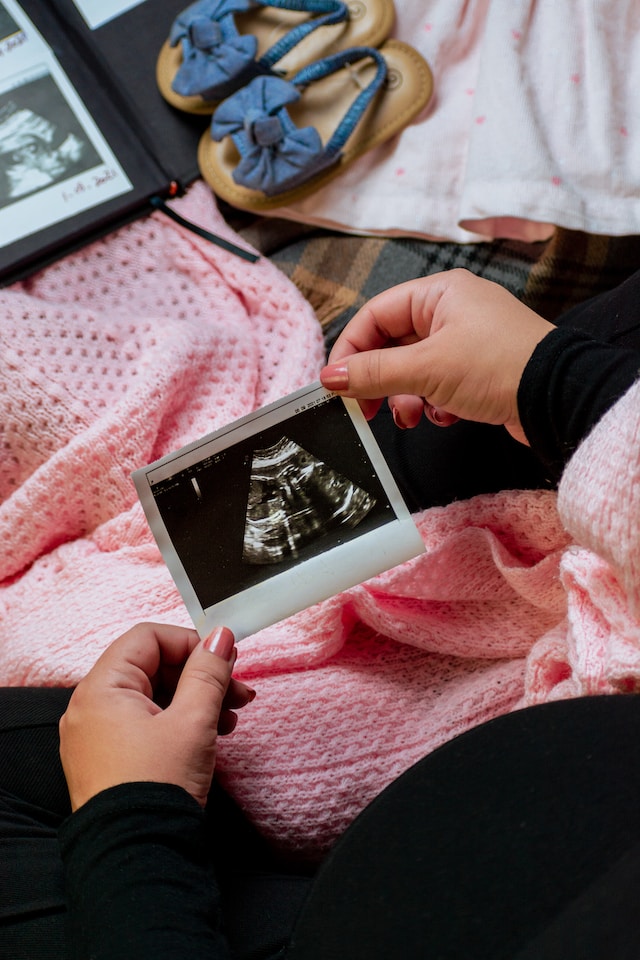Some supporters of abortion argue that unborn babies are not humans yet, and therefore abortion is not equivalent to killing an innocent human. After all, if embryos and foetuses are not human, then there is no issue with abortion. So, the question is: when does human life start?
However, this argument is neither biologically nor morally correct.
Life starts at the moment of conception, when a human egg is fertilised by a human sperm cell. They are combined, and a whole, completely new human life is created. This is the miracle of life.
This new human has unique DNA carried within 23 pairs of chromosomes from mom and dad, which is different from his/her parents, and has his/her own genetic markers that determine features like gender and future hair colour and texture, eye colour, height, and more.
Now let’s examine some objections by supporters of abortion.
Objection 1:
Sperm cells and human eggs also have DNA, and millions of them die. Why is the embryo different?
Answer:
Sperm cells and eggs have 23 chromosomes each and are called haploids. Which means they are not full human organisms. A baby is a full organism complete with 46 chromosomes. Except in rare genetic diseases where the baby may have one more or less chromosome.
Objection 2:
What about adult hair cells, skin cells, or even cancer cells? They all contain human DNA and 46 chromosomes per cell too… and they grow! Are these cells considered human life?
Answer:
Although they do contain DNA, they are only a part of an organ. Not a distinct human being. To know if you are dealing with a living organism or not, we apply the ENT test (that is, Environment-Nutrients-Time). For example, if you take a puppy and put it in the right environment, give it nutrients and food, and give it time, it will grow to be a dog of the same species as its parents. But if you take any of these cells (sperm, eggs, hair, skin, cancer, etc.) and put them in the right environment, providing them enough nutrients and time to develop, will they ever grow up to be adult humans? This classifies them as living cells of organs, not a distinct human life. And not equal to a baby in the womb that will grow into a human being.
Objection 3:
Embryos and foetuses are just a “clump of cells,” they do not feel pain. So, terminating them is okay, right?
Answer:
Wrong! We are all also a “clump of cells,” just bigger. Even if someone is heavily drugged or given anaesthesia that numbs pain, isn’t it still morally wrong to kill an innocent human? Why would the same not apply to human babies? Science has actually proven that they start feeling pain during pregnancy as early as week 24.
Objection 4:
Babies need a mother’s body to live, so if you remove the baby from their bodies and they can’t live on their own, then it’s okay to let them die.
Answer:
Is it? Doesn’t a baby need their mother’s care for a long time after they are born, or else they die if no one steps in? At what age can a child be separated from shelter and nutrients before being able to survive independently? Does that make it morally okay to let them die, or even to kill them for convenience? A mother who neglects her baby, causing him or her to die, is considered morally (and legally) wrong. Why is it different for the same baby who is just a few weeks or months younger? In fact, what about any human who’s fully dependent on another to survive? Unborn babies are living human beings that deserve life just like anyone else.
From a biological standpoint, the age of viability—i.e., the age at which the baby is delivered before completion of pregnancy and still able to survive with the support of medical equipment—is actually getting shorter and shorter as science improves. Previously, foetuses as young as 24 weeks used to be left to die, but now we can save foetuses delivered as young as 20 weeks. Therefore, those standing by this objection should at least insist that killing a baby that can survive outside the womb is morally wrong.
Objection 5:
A foetus never experienced life and is unaware of being alive, so it’s morally okay to terminate it as it wouldn’t miss anything.
Answer:
No, it’s not okay! Being sentient and aware is not something all human beings have all the time. For example, people in a coma or with dementia can be unaware. Does this make them non-human? Is it okay to kill them? But science proves that foetuses as old as 18 weeks are sentient, so how can it be okay to kill them?
Objection 6:
Most biologists believe life does not start at conception.
Answer:
Misinformation! A recent survey among professors in biology departments of over 1,000 institutions worldwide asked them about their views on when life starts. Here are the results:
“5,337 biologists (96%) affirmed that a human’s life begins at fertilization, with 240 (4%) rejecting that view. The majority of the sample identified as liberal (89%), pro-choice (85%) and non-religious (63%).”
Objection 7:
I am a proud Christian, and I believe in the right to abortion. It’s better for a child not to be born at all rather than live a life of suffering.
Answer:
Everyone is entitled to think and identify as he/she pleases. But no one has the right to decide to kill an innocent person based on their opinion of that person’s future outlook. We can never know what life a child may have in the future. Even if that child becomes poor or has diseases, that does not necessarily mean that he/she will live a terrible life or give anyone the right to terminate his/her life. Thinking that only rich, healthy babies deserve to live is not a good enough reason to kill babies who may or may not be.
To summarise:
- Sperm cells, egg cells, hair cells, skin cells, etc. cannot be compared to a fertilised human egg as living organisms.
- Once a sperm cell fertilises an ovum, an embryo immediately begins to develop with 46 chromosomes (usually) and unique DNA already intact.
- A survey among almost 6,000 biology professors worldwide saw 96% of them affirming that a human’s life begins at fertilisation.
- Scientific research has proven that foetuses can begin feeling pain from week 24 of the pregnancy. [By the way, “late” abortions include babies being torn apart piece by piece to successfully extract. And, for the mother’s safety, those pieces are put back together on a tray to ensure everything was removed—with no fingers or toes, or crushed skull fragments left behind. https://www.abortionprocedures.com]
- Taking a foetus out of the womb before 40 weeks can result in his or her death without medical assistance, for sure. However, with medical assistance, a foetus at 20 weeks can be saved. Does the level of independence of a person determine their right to life?
- Science proves that babies as young as 18 weeks are However, if one assumes a foetus isn’t sentient or aware, does this mean that coma patients, for example, may be killed without any moral or legal implications?
The following are articles on a similar line of thought:
Misconceptions About The Christian Point of View on Abortion
The Consequences Of The Sexual Revolution



